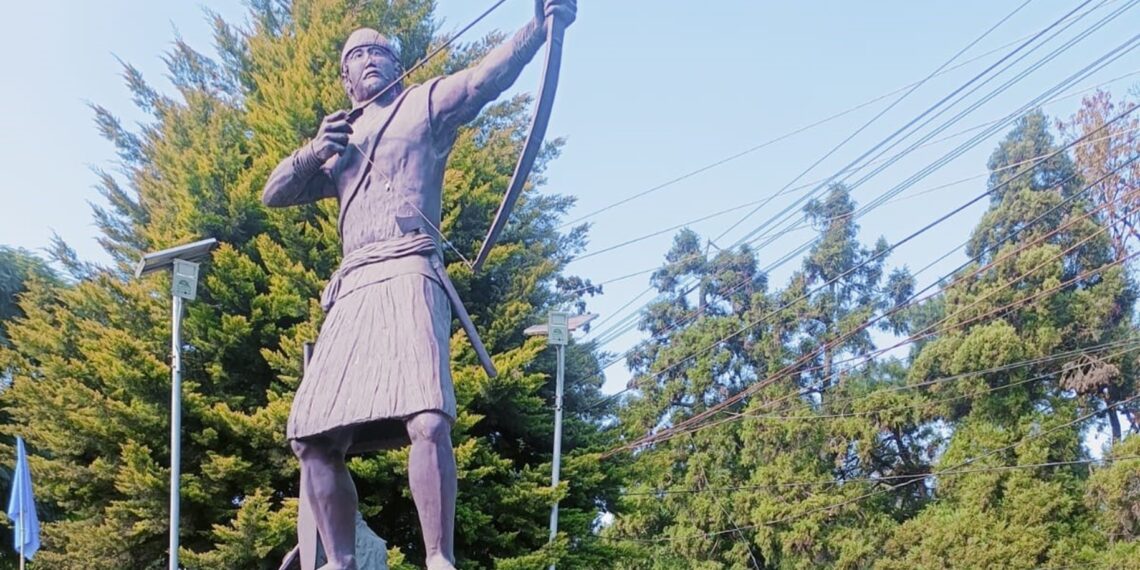SHILLONG: The 162nd death anniversary of freedom fighter U Kiang Nangbah was commemorated in Meghalaya on Monday with a tribute to his contributions to the resistance against British colonial rule.
The Khun Hynniewtrep National Awakening Movement (KHNAM) paid floral tributes to U Kiang Nangbah near the Shillong Civil Hospital, recognising his crucial role in the state’s fight for independence.
Speaking at the event, KHNAM President Thomas Passah described U Kiang Nangbah as a heroic figure whose legacy continues to inspire people even after more than a century and a half.
“Today, we honour U Kiang Nangbah, a true warrior whose bravery and sacrifices remain a source of hope and patriotism for all of us,” said Passah.
He emphasised the importance of remembering Kiang Nangbah’s role in the history of the Khasi and Jaintia peoples.
“It is disheartening that the younger generation seems to overlook the significance of his sacrifices,” Passah observed.
“We must commemorate this day with pride, fostering unity and peace among our people.”
Passah also voiced disappointment over the government’s lack of substantial recognition of U Kiang Nangbah’s death anniversary.
“It is unfortunate that the government has not marked this day with the importance it deserves,” he stated.
“We will continue to advocate for the recognition and honor he truly deserves.”
Additionally, KHNAM urged the District Councils to install a statue of U Kiang Nangbah in their offices by next year as part of efforts to keep his memory alive.
“We will not rest until U Kiang Nangbah’s legacy is properly celebrated,” Passah added.
In Jaintia Hills, members of the Khasi Students’ Union (KSU) also observed the death anniversary by paying floral tributes to the life-size statue of U Kiang Nangbah.
U Kiang Nangbah played a pivotal role in the resistance movement against British colonial forces in the 19th century.
In 1862, he led an uprising that, despite being suppressed, earned him a revered place in Meghalaya’s history.
Born at a time when the British annexed the Jaintia Hills in 1835, Nangbah grew up to challenge British rule, particularly during the 1857 uprising, also known as the First War of Indian Independence.
Nangbah was arrested on December 27, 1862, and executed three days later, on December 30, 1862.
Before his execution, it is said that he gathered local villagers by the Syntu Ksiar River to encourage resistance against the British Empire.
His defiance, coupled with growing resentment toward British-imposed taxes and their interference with local traditions, led many tribes of the Jaintia Hills to rally behind his cause.
Today, U Kiang Nangbah’s legacy remains a significant part of Meghalaya’s history, and ongoing efforts continue to honor and preserve his contributions.















